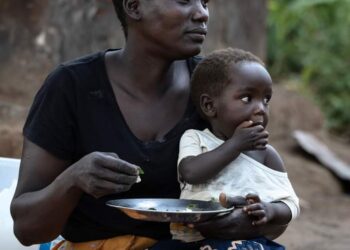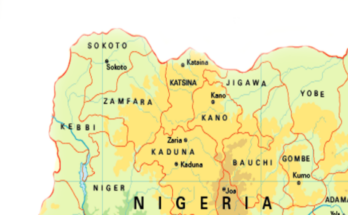The poor cannot sleep because of hunger. The rich cannot sleep because they are guilty of stealing from the poor.
In Nigeria, the divide between the rich and the poor is stark and evident. While the poor struggles to make ends meet and put food on the table, the rich lives in affluence and luxury. This stark contrast in living conditions has created a rift in Nigerian society, with the poor feeling the weight of hunger and poverty on their shoulders, while the rich grapples with guilt and shame for their illicit wealth.
For the poor in Nigeria, sleep is a luxury that many cannot afford. The constant struggle to put food on the table and provide for their families leaves them awake all night, wondering where their next meal will come from. The harsh reality of poverty in Nigeria is that many people go to bed hungry, with empty stomachs and aching hearts. The constant worry of how to survive another day adds to their sleepless nights, as they grapple with the harsh realities of poverty and hunger.
On the other hand, the rich in Nigeria also struggle with their own demons that keep them awake at night. Many of them have amassed their wealth through corrupt means, exploiting the poor and taking advantage of the system to enrich themselves. The guilt and shame of their actions weigh heavily on their conscience, causing them to toss and turn in their luxury beds, unable to find peace in their ill-gotten gains.
The Nigerian society is plagued by a culture of corruption and greed, where the rich gets richer at the expense of the poor. The gap between the haves and the have-nots continues to widen, as the rich continues to exploit the poor for their own gain. This vicious cycle of poverty and inequality has created a society where the poor struggles to survive, while the rich lives in luxury, insulated from the harsh realities of life.
The poor in Nigeria are trapped in a cycle of poverty that is difficult to escape. With limited access to education, healthcare, and economic opportunities, many of them are forced to rely on menial jobs and meager wages to survive. The lack of social safety nets and government’s support exacerbate their plight, leaving them vulnerable and exposed to the harsh realities of poverty.
Conversely, the rich in Nigeria have reaped the benefits of a corrupt system that allows them to exploit the poor and amass wealth at the expense of others. Their ill-gotten gains have come at a great cost to society, as the gap between the rich and the poor continues to widen, creating social tensions and conflicts that threaten the fabrics of Nigerian society.
In order to bridge the gap between the rich and the poor in Nigeria, there needs to be a fundamental shift in the way that wealth is distributed and shared. Government must take decisive action to address the root causes of poverty and inequality, by implementing policies that promote economic growth, social inclusion, and equal opportunities for all citizens.
Furthermore, the rich in Nigeria must also take responsibility for their actions and acknowledge the harm that they have caused to the poor. They must work towards creating a more equitable society, where everyone has access to the resources and opportunities needed to thrive and succeed. By working together, the rich and the poor in Nigeria can create a more just and equitable society, where all citizens can live in dignity and prosperity.
In conclusion, the divide between the rich and the poor in Nigeria is a stark reminder of the inequalities that plague our society. The poor struggles to survive, while the rich grapples with guilt and shame for their ill-gotten gains. In order to create a more just and equitable society, we must work towards bridging the gap between the rich and the poor, by addressing the root causes of poverty and inequality, and promoting economic growth, social inclusion, and equal opportunities for all citizens. Only then can we create a society where everyone can sleep soundly at night, knowing that they have a fair chance at a better future.
Abdulkareem Haruna,
Kuje, Abuja




